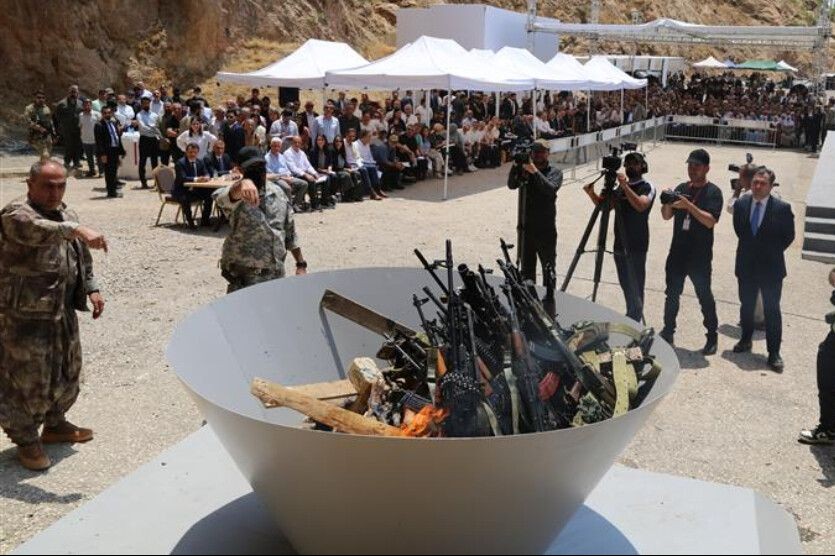Let’s reject the one-man regime with enthusiasm of May Day!

İhsan Çaralan

Fotoğraf: Fırat Turgut/EVRENSEL
Workers all over the world, from Tokyo to Paris, Sydney to Havana declared not just their demands against capitalist exploitation but also protested imperialist war ambitions.
Of course 1 May 2018 was also celebrated in Turkey by protesting against capitalist attacks, the governments domestic and foreign policies and the economic trajectory.
According to the news reports reaching us at the time of writing;
- İstanbul, Ankara and Izmir led participations in May Day celebrations across Turkey’s towns and cities, which attracted masses in numbers incomparable to previous years.
- As expected the demands for better working and living conditions were prominent amongst the May Day demonstrators. The prominent demands and issues related to low wages, job insecurity, outsourcing, arbitrary dismissal, trade union membership, and education and health.
- Demonstrators carried placards and banners calling for an end to the State of Emergency, the cancellation of all statutory decrees, peace and fraternity against the war, and rejecting attempts to establish a “one man one party regime”.
On the other hand, it is without a doubt that this year’s May Day attracted the largest May Day demonstrations recent years.
Despite some trade union confederations holding rallies in different cities, it is right to say that participation by both trade union and political circles at May Day was higher than in previous years.
Of course when viewed as a whole; trade union groups largely highlighted workers demands whilst political parties and their groups highlighted political demands. When compared with previous years, this year’s banners and placards featured fewer economic and political demands. Demands were overshadowed by party, political groups and trade union flags. This should be noted as a weakness to be overcome. Of course, that banners featuring direct criticism of the government were not permitted (and that this was known in advance) may have led to this outcome. In Maltepe for example demonstrators were allowed entry only after passing through three security barriers and banners directly criticizing the government were not permitted.
The reasons for higher participation in May Day as compared to previous years is due primarily to the following reasons:
1-) Discontent with the ongoing state of emergency, the effects of which have become heightened by the “war time” practices, have accumulated into a reaction.
2-) Capitalist attacks on hard won rights have reached a level at which workers are feeling the pain.
3-) The public chose to express their opposition to attempts by the Erdogan-Bahceli alliance to drag the country into a “one-man regime” by attending the May Day demonstrations.
In the end May Day is now in the past and today the most important issue which could legalise the “one party one-man regime” is the election on 24 June.
Both in İstanbul and across the country, the May Day demonstrations show that the people (of Turkey and the region) want a secular, democratic Turkey in which there is fraternity between people. The people who came together around the values of May Day clearly stand opposed to a “one party, one-man regime”. Moreover, the size of these masses is not insignificant – as long as these people can (beyond voting) mobilise around the demands articulated at May Day!
[…]
Attendees estimated that approximately 200-300 thousand people joined the May Day rally. In fact, a sizeable number of people think this number is higher. But what is important is the growth of demonstrators compared to previous years and the reasons for this increase. Based on the period ahead of us, it will be possible to look at who will be shapingthis organizational progress and the backgrounds of participants.
Forwarding to the next article...
10 seconds remaining





Follow Evrensel